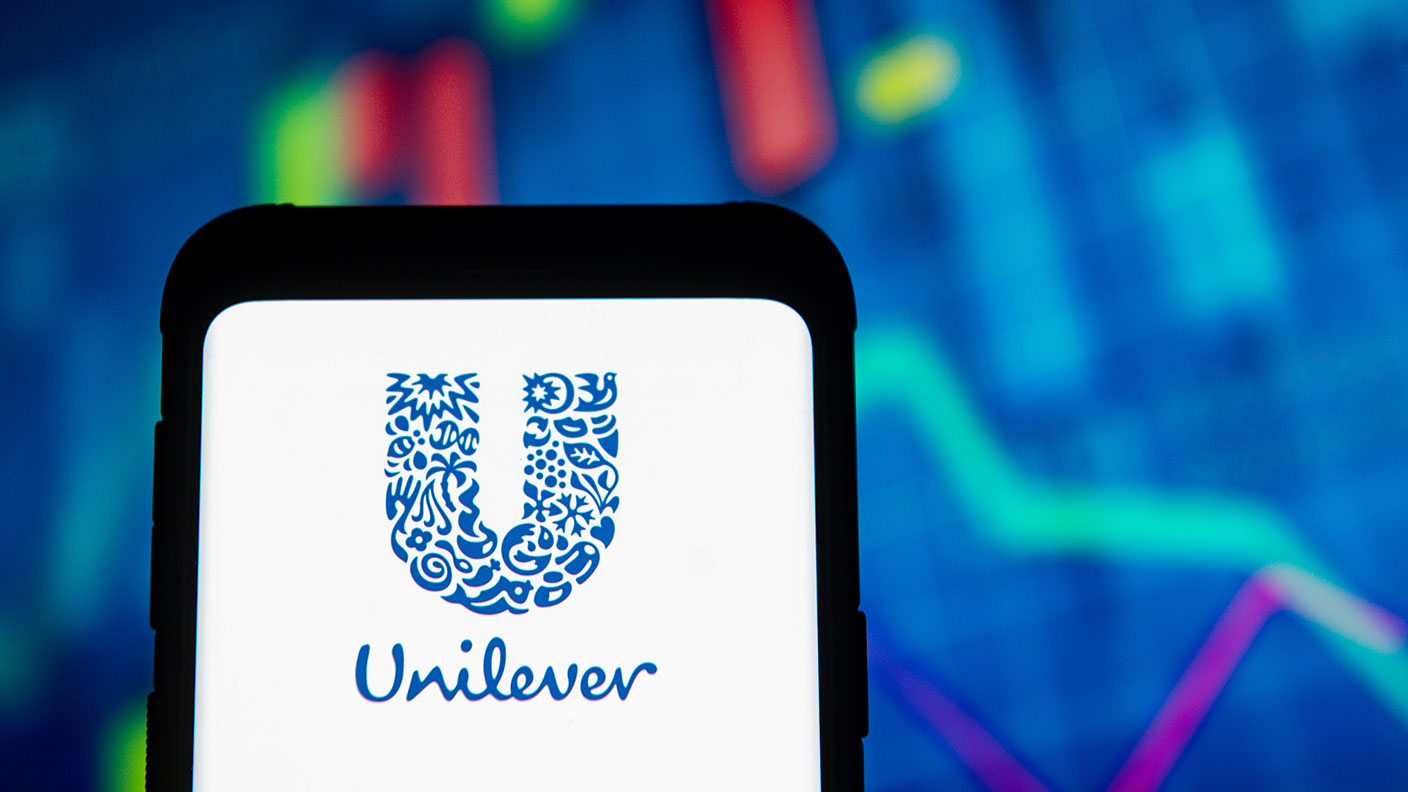Get the latest financial news, insights and expert analysis from our award-winning MoneyWeek team, to help you understand what really matters when it comes to your finances.
You are now subscribed
Your newsletter sign-up was successful
Want to add more newsletters?

Twice daily
MoneyWeek
Get the latest financial news, insights and expert analysis from our award-winning MoneyWeek team, to help you understand what really matters when it comes to your finances.

Four times a week
Look After My Bills
Sign up to our free money-saving newsletter, filled with the latest news and expert advice to help you find the best tips and deals for managing your bills. Start saving today!

US food giant Kraft, which swallowed up Britain's Cadbury in 2010, has failed for now to do the same to Unilever. Ben Judge reports.
American food behemoth Kraft Heinz surprised the markets last week with a $170bn takeover bid for Anglo-Dutch consumer goods and food conglomerate Unilever, whose brands include Marmite and Ben & Jerry's. But it faced fierce resistance from Unilever's management, as well as from politicians in the UK and the Netherlands. Forty-eight hours after making its offer, Kraft withdrew it.
In Britain, Kraft is remembered for "reneging on a jobs promise" after its takeover of Cadbury in 2010, said Nils Pratley in The Guardian. No wonder politicians weren't impressed. If billionaire Warren Buffett and Brazilian private-equity firm 3G Capital, Kraft Heinz's major shareholders, "couldn't see outrage" looming, "they were astonishingly nave".
MoneyWeek
Subscribe to MoneyWeek today and get your first six magazine issues absolutely FREE

Sign up to Money Morning
Don't miss the latest investment and personal finances news, market analysis, plus money-saving tips with our free twice-daily newsletter
Don't miss the latest investment and personal finances news, market analysis, plus money-saving tips with our free twice-daily newsletter
Buffett and 3G have "come to epitomise the citizens of nowhere' style of capitalism that has helped trigger populist revolts across the globe", agrees Lex in the Financial Times. No politician could be under any illusion that Kraft Heinz intended to cut costs and eliminate jobs, adds an FT editorial. "That is simply what Kraft Heinz does."
It was a "ridiculously low" offer in any case, as Allister Heath points out in The Daily Telegraph. It succeeded only in "terminally alienating Unilever's management". The structure of the deal was "laughable". Unilever shareholders were offered cash, but as much of the money would be raised by "massively leveraging up the business", they were effectively lending some of the cash back to Kraft Heinz. The Americans' business model also leaves a lot to be desired.
It has little to do with organic growth that would require "spending on factories, research and development and marketing". Kraft prefers "leveraging up, slashing costs [and] moving on to another target". Although Unilever's approach isn't perfect, it's a lot better than Kraft's. Its "investment and growth model" has returned more to its shareholders 45% in three years than most of its main competitors.
Still, the bid was a "wake-up call" for Unilever, which "needs to step up a gear", say Andrea Felsted and Chris Hughes on Bloomberg.com. Paul Polman, Unilever's chief executive, is "on notice". Under UK takeover rules, Kraft Heinz can't make another bid for six months, but it will probably be back. Its approach has made clear that there is "fat to be cut" at Unilever, which Polman must now cut himself. He could sell its "under-performing" spread business, for instance; a more radical option could be to bring forward his own retirement. The shares have lagged the FTSE 100 for most of the past year, and investors' patience won't last forever.
City talk
"Is there any logic to government subsidies?" asks Matthew Vincent in the FT. Drax, owner of the UK's largest power station, received more than £450m in UK green energy subsidies last year to convert half its coal-fired plant to run on wood pellets, or "biomass". But then, inexplicably, the government decided to make biomass plants liable for the climate change levy, leading to a £34m hit to Drax's earnings. Drax has claimed that it could save consumers £2.2bn over 15 years. But now that seems to be "going the way of its wood pellets and dividend prospects: up in smoke".
Bad news for those of us hoping the big brains at the Bank of England have any idea of how the economy is likely to fare at any given point. Economist Dr Gertjan Vlieghe, a member of the bank's Monetary Policy Committee, appeared before the Treasury Select Committee of MPs to explain how the bank's forecasting models got things so wrong in the run-up to the EU referendum. "We are probably not going to forecast the next financial crisis, or forecast the next recession," he said. "Our models are just not that good."
Donald Trump is famously fond of Twitter, but it seems he's quite keen on websites too. According to CNN Money, Donald Trump has amassed a vast portfolio of domain names, or website addresses: 3,643 of them, to be accurate. Some are obvious choices: DonaldJTrump.com and Trump.com, for instance. The list includes TrumpOrganization.com (as well as TrumpOrganisation.com he's nothing if not thorough) and even TrumpEmpire.com. But he's also hoovered up any that might be used against him. ImBeingSuedByTheDonald.com was an early one. He also owns TrumpRussia.com, despite claiming he has no business ties with Russia, along with VoteAgainstTrump.com and TrumpMustGo.com, both acquired in 2012.
Get the latest financial news, insights and expert analysis from our award-winning MoneyWeek team, to help you understand what really matters when it comes to your finances.

-
 Average UK house price reaches £300,000 for first time, Halifax says
Average UK house price reaches £300,000 for first time, Halifax saysWhile the average house price has topped £300k, regional disparities still remain, Halifax finds.
-
 Barings Emerging Europe trust bounces back from Russia woes
Barings Emerging Europe trust bounces back from Russia woesBarings Emerging Europe trust has added the Middle East and Africa to its mandate, delivering a strong recovery, says Max King
-
 Inflation is hurting Unilever, but investors shouldn’t give up just yet
Inflation is hurting Unilever, but investors shouldn’t give up just yetAnalysis Consumer goods group Unilever has been underperforming as inflation bites. It's made errors in the past, says Rupert Hargreaves, but with valuable brands and a global reach, it still has plenty going for it.
-
 Why GSK should turn down Unilever’s billions
Why GSK should turn down Unilever’s billionsNews Unilever has offered GSK £50bn for its consumer division. But while the cash will be a temptation, the deal is not in the interests of shareholders or of anyone else, says Matthew Lynn.
-
 Unilever slides and GSK bounces after GSK knocks back £50bn bid
Unilever slides and GSK bounces after GSK knocks back £50bn bidNews Unilever shares fell to their lowest level in around five years, after its £50bn takeover bid for GSK’s consumer health unit was rejected.
-
 Unilever puts the U in U-turn
Unilever puts the U in U-turnFeatures The Anglo-Dutch consumer-products giant irritated shareholders with plans to redomicile in Rotterdam. Now it has beaten a retreat. Marina Gerner reports.
-
 Unilever and the erosion of shareholder democracy
Unilever and the erosion of shareholder democracyFeatures The way Unilever went about planning the vote on moving its head office out of the UK wasn’t normal and it wasn’t right, says Merry Somerset Webb.
-
 Unilever leaves Britain
Unilever leaves BritainFeatures Consumer-goods giant Unilever has chosen Rotterdam over London for its unified headquarters. Takeover threats and taxes played a part. Alice Gråhns reports.
-
 Nick Train: the value in Unilever
Nick Train: the value in UnileverFeatures Quality growth companies are still cheap relative to history, thinks fund manager Nick Train.
-
Unilever should snub the “crazy cost-cutters”
Features Unilever could soon dispose of some of its best-known brands in a bid to appease shareholders. But should it listen to them?
